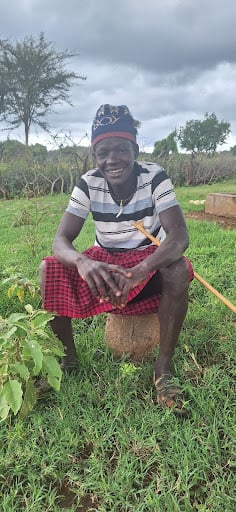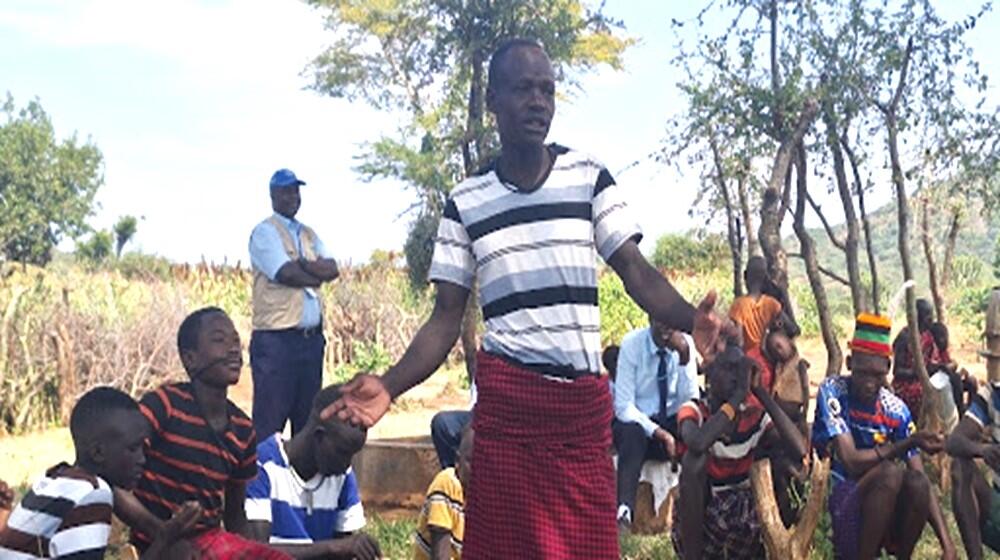Adolescents and young people face significant barriers that undermine their sexual reproductive health and rights. During adolescence, a number of changes occur including physical psychological and social changes associated with puberty.
This was the case of twenty four -year- old Etwalameri Lourien Yoahana living in the northeastern Uganda district of Moroto who shares his personal experience, shedding light on the challenges faced by many young people like himself in the Karamoja sub-region.
According to Etwalameri, the lack of sexual reproductive health information for his peers at an early age probably contributed to his decision to marry a wife at just nineteen years and another three years later, becoming a father of four children.
Limited by access to sexual reproductive health information and services, young people face a perplexing period of transition from adolescence to adulthood, characterised by vulnerability to child marriage, teenage pregnancies, exposure to HIV and sexual violence.
“As a teenager, I had no idea what was happening to my body. I would wake up in the morning confused and run and hide behind the hut because I did not understand that erections were a normal and natural part of being male,” he narrates.
“Yes, I knew all about my home chores, like taking care of livestock, but nothing prepared me to understand the changes happening in my body, physically and emotionally…. I even started fancying girls so much and longing to be with them, but I didn't know how to handle such feelings,” he narrates.

Twenty four -year- old Etwalameri Lourien Yoahana living in the northeastern Uganda district of Moroto who shares his personal experience, shedding light on the challenges faced by many young people like himself in the Karamoja sub-region.
It was until October 2023 when he joined the boys Loyaraboth empowerment and livelihood club that he began to understand what was happening to him.
“ I participated in a group discussion that was talking about ‘Adolescents and Body Changes’, and then I understood my own and other boys' journey of growing up to the young adults that we are now.
“It is a decision I could have delayed had I known that the body changes I was experiencing at that time pushed me to marry or engage in early sex,” he says.
Today, Etwalameri is among the 60 members of Loyaraboth empowerment and livelihoods for adolescents boys club who meet three times weekly to learn about adolescents, reproductive health, gender based violence, HIV prevention among other topics.
With funding from the Austrian Development Agency (ADA II Project) UNFPA has supported 42 Empowerment and Livelihoods for Adolescents (ELA) clubs for out-of-school boys and girls aged 10 - 24 years, in six districts of Karamoja sub-region, directly engaging 1,984 young people weekly. These clubs have enabled access to sexual reproductive health and rights education, linkage to adolescent friendly services, life skills training and support to small scale economic activities. With this approach, UNFPA ensures that adolescents and youth flourish on their road to adulthood.
The revised Uganda Adolescent Health Policy 2021 emphasizes the fundamental rights of adolescents and young people to correct health and well being information, and puts in place mechanisms to improve access and availability of adolescent responsive health services and information by addressing the bottlenecks to uptake of services.
Etwalameri as a key participant in the boys club takes this opportunity to learn seriously and he also puts into practice some of the learning. He says,
“In this very club, we discuss the dangers of alcohol and drug abuse among young people, which is a factor increasing the prevalence of violence against women. I avoid alcohol abuse because I want to have peace in my home and also be able to support my children to go to school, since I did not receive any education,” he says.
“My appeal is that every young person is enrolled in a club like ours because parents do not give information to struggling adolescents, and there are a lot of taboos and misconceptions. For instance, I cannot pick condoms from the health facility to use because people will say I sleep with prostitutes.”
According to the National Population and Housing Census (2024), adolescents and young people including children comprise 73.2 percent of the population. This population could offer enormous socio-economic gains to the country, but only if their adolescence - transition from childhood to adulthood- is effectively managed through an integrated set of policies and programmes that addresses the “whole person” and pays close attention to the context in which young people live.
- Story written by Patricia Nangiro



